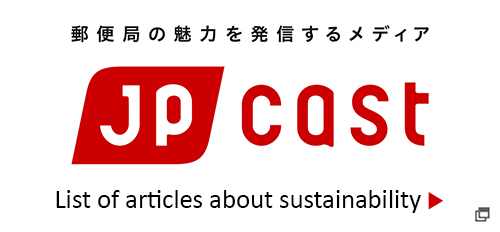- Position:
- Home

- English Home

- JP group Sustainability

- Sustainability Management

- Dialogue with Stakeholders
Dialogue with Stakeholders
Stakeholders of the Japan Post Group
| Stakeholders | Main engagement methods |
|---|---|
| Customers |
|
| Shareholders |
|
| Communities |
|
| Employees |
|
The Group's Customer Satisfaction Survey
In order to accurately identify the state of products and services from customers' viewpoints and respond to new demand, etc., a survey is conducted on customers' evaluations in terms of their level of satisfaction, their intent to use products and services, etc.
In addition, as an indicator to measure and analyze the details of improving customer satisfaction, the Japan Post Group uses NPS®*.
For the purpose of further improving customer satisfaction, the Japan Post Group will continue to perform fixed-point observation into the future and utilize the findings from the Group's customer satisfaction survey in management.
*NPS®:Net Promoter Score is a registered trademark of Bain & Company, Inc., Fred Reichheld, and NICE Systems, Inc.
Utilizing Customer Feedback in Management
The following are examples of how employees used their creativity to improve products and services based on valuable feedback and requests from customers.
| Customer Feedback | Improvements |
|---|---|
| [Japan Post] It is inconvenient because certain post office counters do not accept cashless payments. |
We adopted cashless payments for postal services at approximately 20,000 directly managed post offices countrywide. |
| [Japan Post Bank] I want to be able to withdraw money from the ATM without my cash card. |
We added a function to the Yucho Bankbook App and by reading the 2-D code on the ATM screen, cash can be deposited or withdrawn without a cash card. |
| [Japan Post Insurance] Filling out the forms when conducting procedures is a hassle. I wish it was simpler. |
Starting from October 10, 2023, certain procedures can be done paperless. Furthermore, from March 18, 2024, the scope of paperless procedures has expanded. As a result, the hassle of filling out customer forms, including paper claims, has been reduced significantly and procedures have been simplified. ■Applicable procedures ・Designation and change to the insurance beneficiary 34 ・Claims for hospitalization and surgical insurance benefits, etc. (from March 18, 2024) |
Employee-president meetings
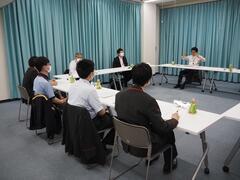
Meeting for mutual exchange of opinions
In an effort to foster an open corporate culture, the president of Japan Post Holdings meets regularly with employees of all Group companies across Japan for and exchange of ideas and opinions.
Participants discuss such topics as the Group's future vision and how best to improve services based on customer feedback. These meetings allow the broad sharing of management policies with employees, and reflect in management the feedback from workplaces.
Investor Relations Activities Report
To contribute to sustainable growth and enhancement of corporate value over the medium to long term, the Japan Post Group aims to disclose information accurately and equally to all shareholders and investors and endeavors to engage in constructive dialogues. Feedback and requests received through such dialogues are discussed periodically at Board of Directors' meetings, and utilized to improve management.
Activities in the fiscal year ended March 31, 2025
| Activity | Detail |
|---|---|
| Main respondents*1 | Director and Representative Executive Officer, President & CEO; Director and Representative Executive Officer, Senior Executive Vice President; Representative Executive Officer, Executive Vice President; IR Office, Corporate Planning Department |
| The 19th Annual General Meeting of Shareholders | Date: June 19, 2024 |
| Individual Interviews with Institutional Investors & Analysts*2 | Overseas investors: 97 firms Domestic investors: 23 firms Securities analysts: 30 firms |
| Financial Results Conferences and Small Meetings for Institutional Investors and Analysts*2 | Meetings held: 8 Number of participants: 973 |
| The 20th Annual General Meeting of Shareholders | Date: June 25, 2025 |
- Positions as of April 1, 2025
- Cumulative number of participants and times
Details of Discussion and Management Reflects Shareholder, Investor Feedback
| Details of Discussion | Substance of Action |
|---|---|
| Main points discussed, topics of shareholder and investor interest |
|
| Shareholder and investor feedback given to management and Board |
|
| Action taken based on discussions with shareholders and investors |
|
IR annual schedule
| First Quarter | Apr. | |
|---|---|---|
| May | Full-year financial results | |
| Jun. | General Meeting of Shareholders | |
| Second Quarter | Jul. | Integrated Report issued |
| Aug. | 1Q financial results | |
| Sep. | ||
| Third Quarter | Oct. | |
| Nov. | 2Q financial results | |
| Dec. | ||
| Fourth Quarter | Jan. | |
| Feb. | 3Q financial results | |
| Mar. |
Dialogue with outside experts (October 7, 2023)

On October 7, 2024, outside experts were invited to engage in a dialogue. Five experts provided us with an evaluation of the Japan Post Group's main initiatives on sustainability and various opinions and recommendations on our future challenges as well as their expectations and requests for the Group.
Comments from Experts
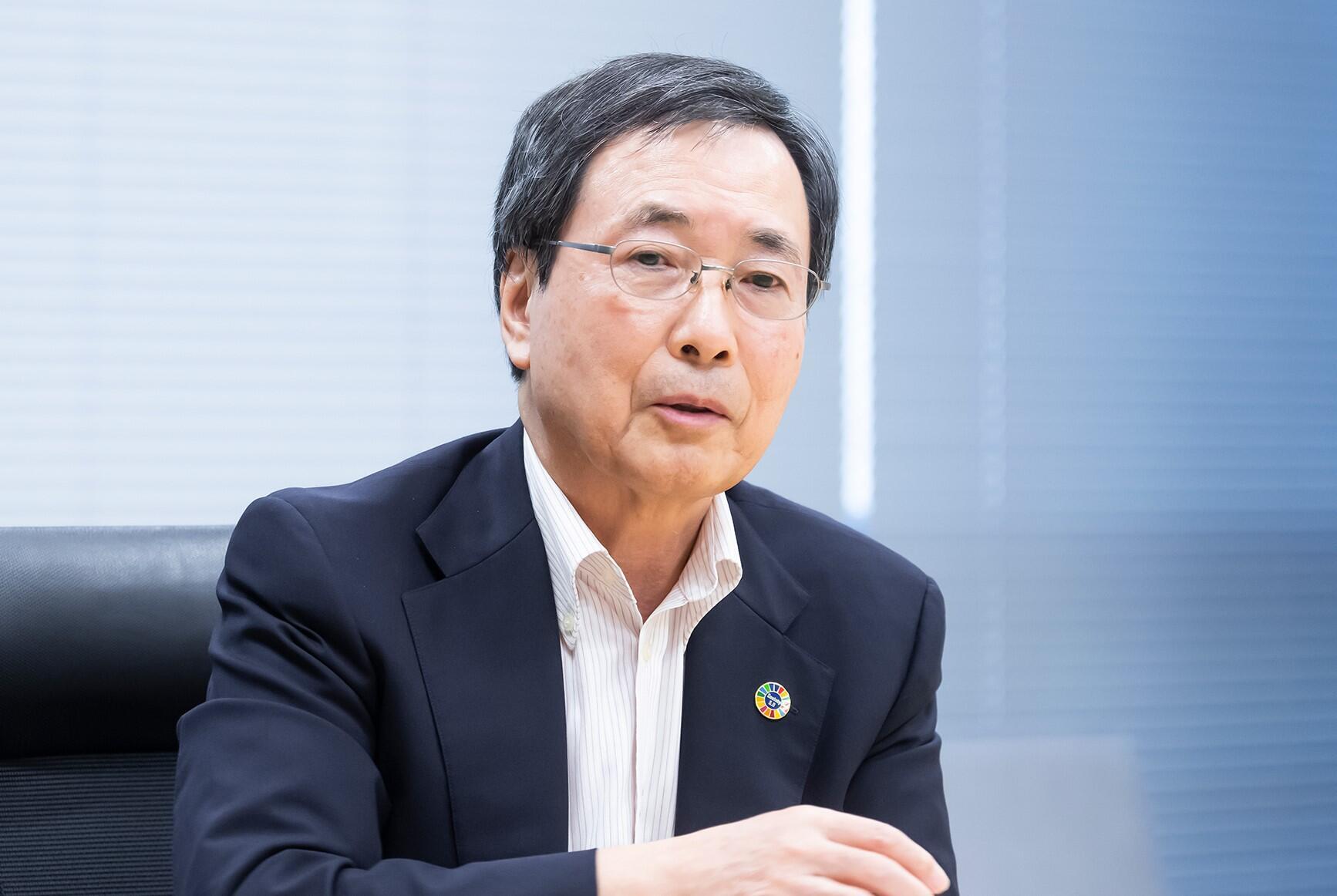
SEKI Masao
Visiting Professor,
The Open University of Japan
The Japan Post Group has been expanding and enhancing its sustainability-related initiatives at a time when the rest of the world is also advancing in terms of addressing sustainability. Going forward, the Group needs to further enhance its social measures as well as its efforts to address environmental issues. Meanwhile, as demographic aging and depopulation continue to play out, society is increasing looking to the Group to fulfill important roles for the maintenance and development of local communities, a task that it has tremendous potential to achieve. The Local Co-creation Initiative is significant in this regard, both for the development of human resources and the identification of new business opportunities. I hope that the Group will demonstrate leadership to foster and scale-up the Initiative going forward while further deepening ongoing collaboration with government at both the national and local level and with citizens to build an inclusive society where no one is left behind. As for "Business and human rights," Japanese companies are advancing their own measures and are expected to make efforts beyond pro forma due diligence to contribute to the fundamental solution of related issues with a focus on human rights holders. For information disclosure, companies are now required to visualize the results of their initiatives and the impact that they have on society, which will eventually help the companies increase their corporate value. Accordingly, it is important for the Japan Post Group to evaluate its results within a certain time frame and based on numerical data.
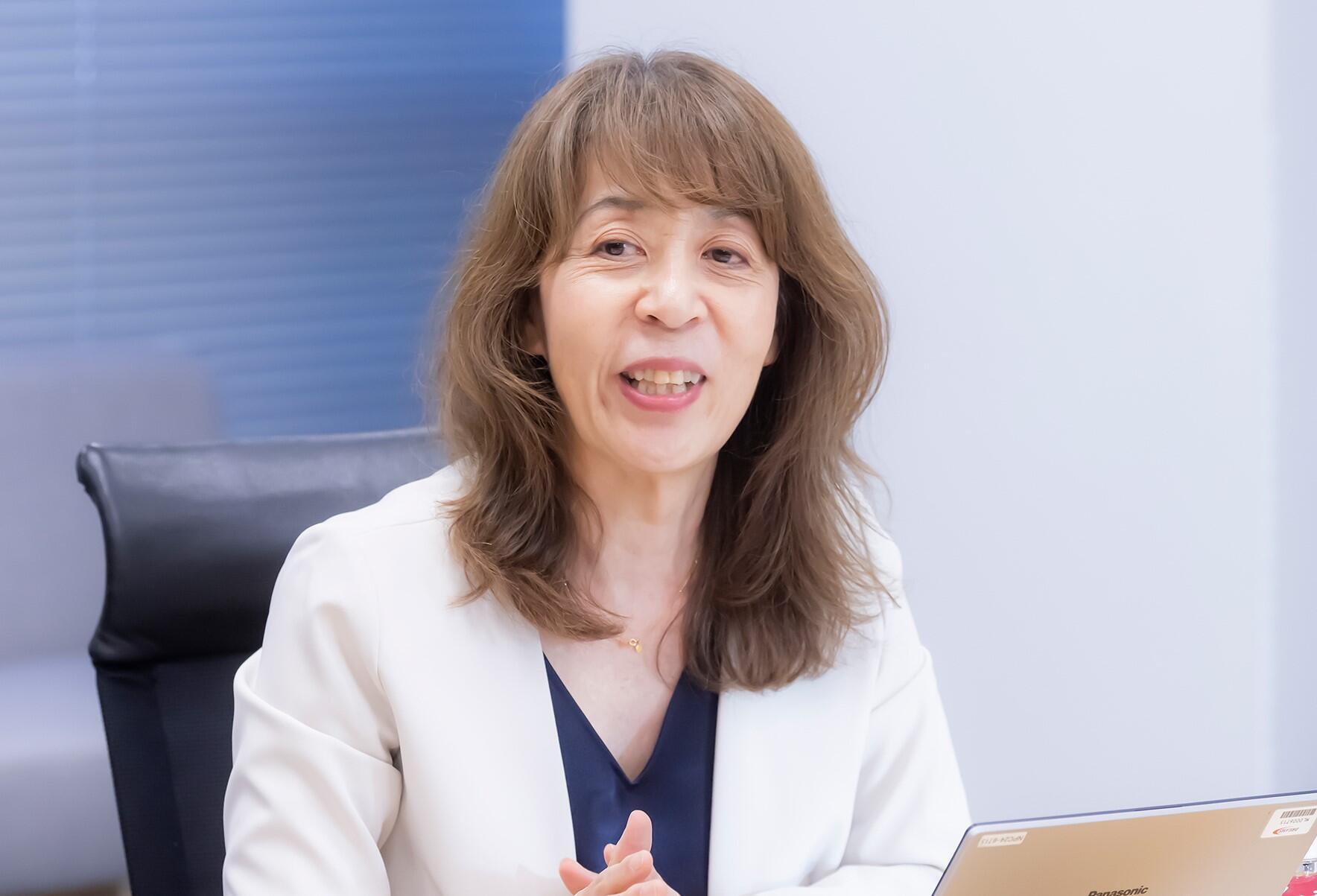
YOSHITAKA Mari
Fellow
Mitsubishi UFJ Research and
Consulting Co., Ltd.
It is important for the Japan Post Group to set its material issues in consideration of its unique features. For example, I think the Group can demonstrate its strength in the field of "safety" with regard to the recently proposed "Safe and Just Earth System Boundaries, by fulfilling lifeline functions in the event of a disaster and responding to a range of local issues. Also, the Group can revitalize local industries by making effective use of post offices located in the respective regions and can give advice and offer financial and human support to help SMEs to expand their businesses. Further, the Group can provide students who want to contribute to decarbonization and other issues in their hometowns with opportunities to do so and can also encourage young people who are highly interested in sustainability to change their behaviors based on the Group's diverse links with customers. For sustainability in general, companies are shifting from the stage of setting policies, concepts and missions to the stage of implementing them. Against this backdrop, it is essential for the Group to implement measures and make a substantial impact on society by making use of its features. I think the Group can reform its organizational ability to carry out plans by measures such as granting in-house awards to encourage employees to conduct relevant activities with ownership.

MANAGI Shunsuke
Professor,
Department of Urban and
Environmental Engineering,
Faculty of Engineering,
Kyushu University
I think it is quite meaningful that the Japan Post Group, which embodies the very concept of inclusivity by way of its wide-ranging service provision business model, is working for well-being. Even if other companies withdraw from businesses in rural areas, post offices will continue to be there and are thus expected to fulfill special roles in society. Meanwhile, it is important for the Group to set its KPIs based on quantitative data. By visualizing the invisible value of services in each region and making use of the numerical data thus gained, the Group will be able to optimize its measures. I also believe that the Japan Post Group can contribute to the collection of data about the value of regions themselves, which will in turn help the Group implement more efficient measures and fulfill its accountability. Moreover, the Group needs to evaluate the well-being of its employees quantitatively in order to understand what is needed to make improvements. This will also help increase employees' motivation to strive for promotion. I would urge the Group to conduct a series of small pilot programs over a predefined period. This will be an effective means of becoming an organization that can embrace new challenges without being afraid of failure.
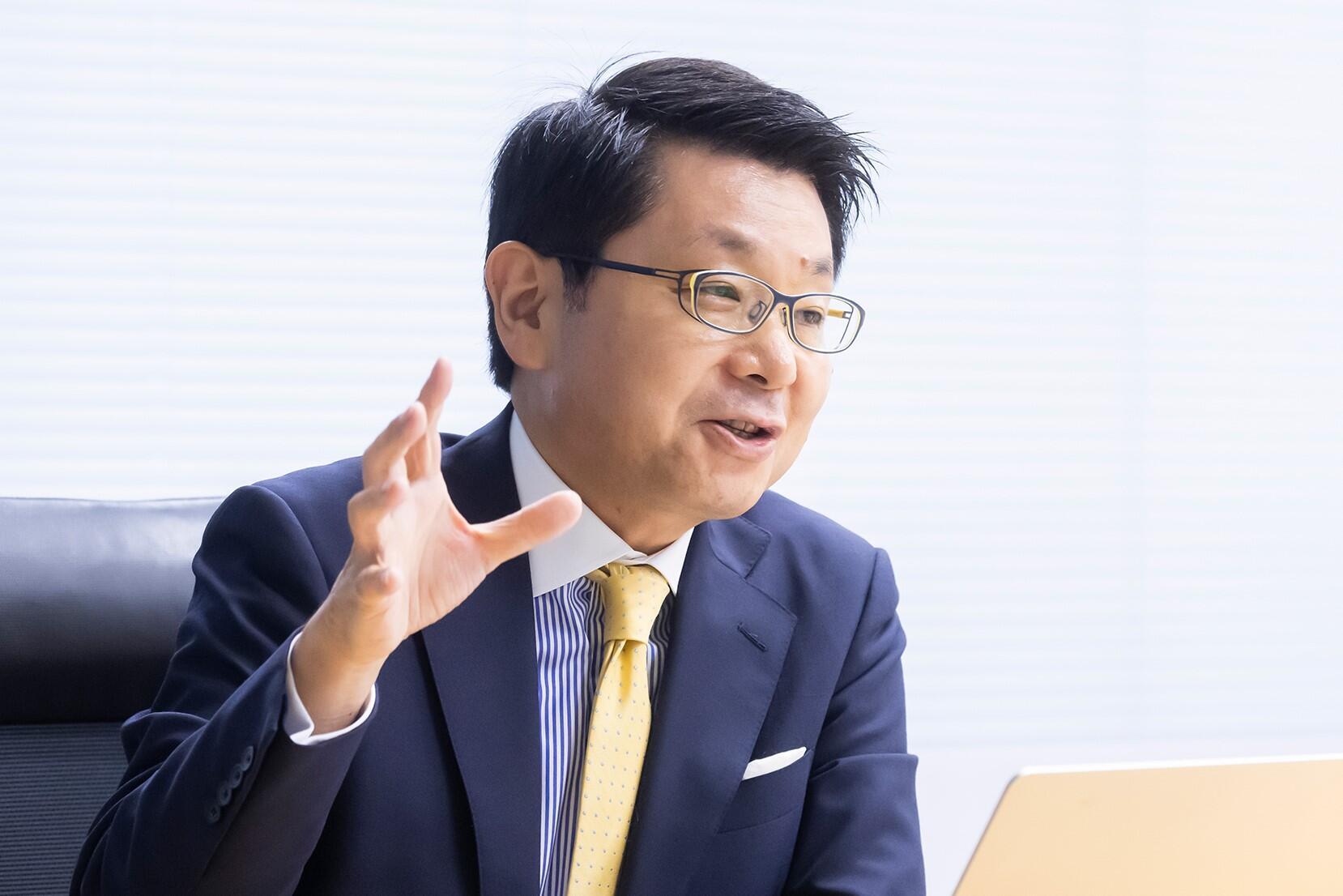
ADACHI Naoki
CEO of Response Ability, Inc.
Executive Director,
Japan Business Initiative for
Biodiversity (JBIB)
Against a backdrop of demographic aging and the hollowing out of rural communities, the economic independence of each region is an essential premise if companies are to continue to operate regional bases. I therefore propose that the Japan Post Group participate in the creation of a new economy based on the natural assets of each region. As "Nature positive," which means to restore and increase nature beyond minimizing negative impact on biodiversity, becomes a global goal, the reconstruction of primary industry, green infrastructure, and hands-on tourism are attracting attention. The number of companies working on these is still small in Japan, but the outflow of people from rural areas will continue if the conventional mass-production-for-mass-consumption model continues to be followed. The Japan Post Group has a regional network covering the entire country and so has the potential to contribute to solving such issues. I also expect that both the Group and the country itself will implement reforms by working seriously for the reconstruction of each region. I personally would like to see the Group create new businesses in each region for the establishment of a truly co-creative platform. Further, it is important to set the Group's long-term targets and work to achieve them by following the backcasting method. By clarifying the direction in which to head, the Group will be able to build an environment in which on-site workers can proactively propose new ideas.

ICHIMORI Yasushi
Professor, Graduate Institute
for Entrepreneurial Studies
(Participated in the meeting
virtually)
Regarding the Group's Human Resources Policy, a special focus was placed on employees' "pride and fulfillment," based on the idea that employees will make even more contributions to the performance of the entire company if they derive a sense of pride and fulfillment from their work. human capital-oriented management differs from the management of business practices and represents a firm-wide initiative to achieve corporate strategies and to continuously increase corporate value. Based on this recognition, the Japan Post Group needs to clarify the type of talent needed, steadily implement the Human Resources Policy, and verify the ways in which the results are reflected in the corporate value. Also, for the Japan Post Group to be an organization that can respond to changes, the Group needs to support employees in their autonomous career development and provide them with an environment where they can feel pride and fulfillment in their jobs and are encouraged to take on managerial roles. Also, it is essential for the Group to empower women, which also helps promote its business. Making effective use of frontline employees is critical for organizational growth. The Group can have big impacts on local communities through the friendly service and actions of its employees. I hope that the Group will continue to implement measures that will make employees feel even prouder and more fulfilled, thereby making the organization even stronger.
Comments of attendees from Japan Post Group in response to comments by experts
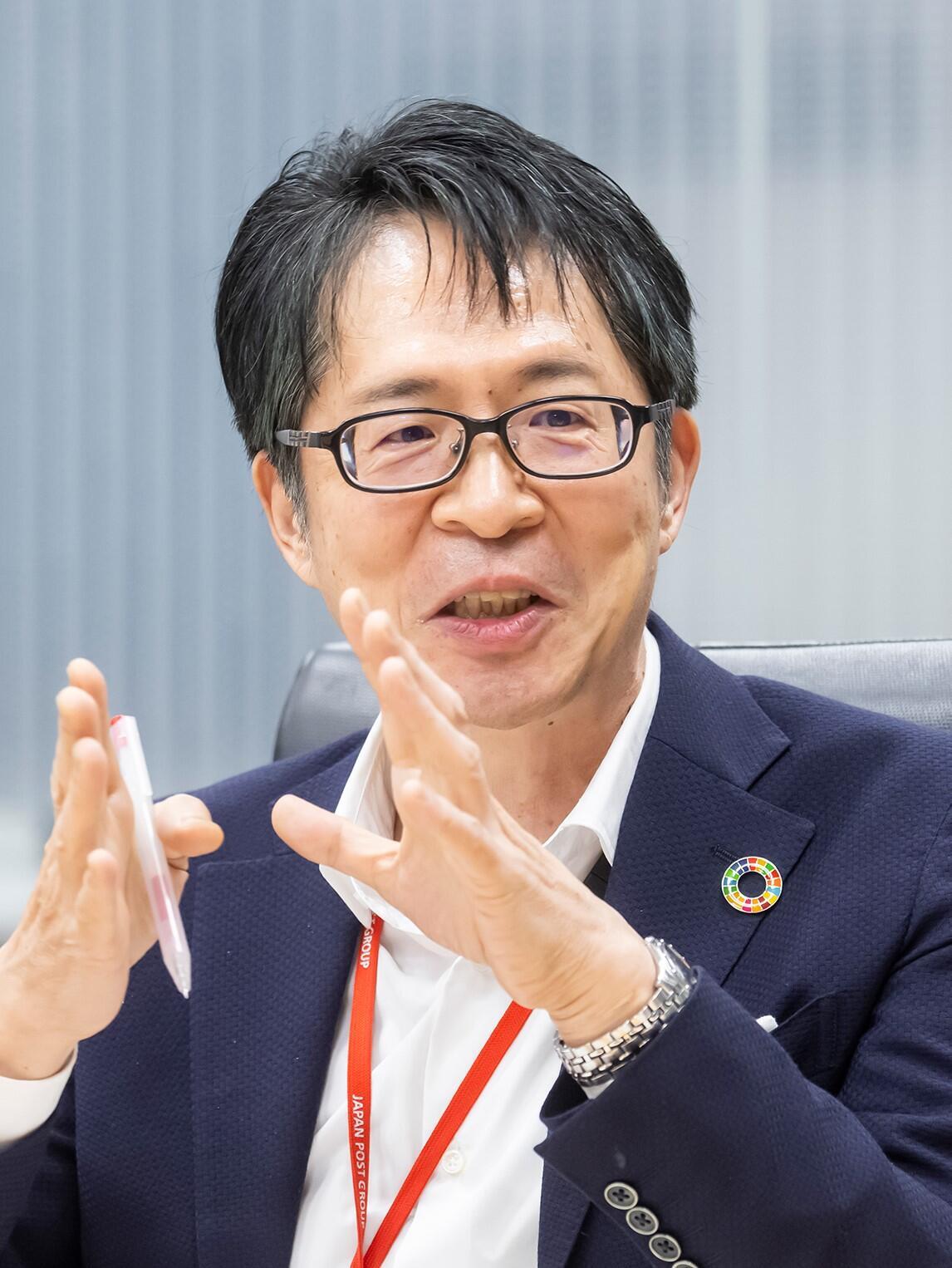
KATO Nobuyasu
Representative Executive
Officer and Executive
Vice President
Japan Post Holdings
Co., Ltd.
Hearing that nature positive measures help create a new business model for regional economies, I perceived the possibility of such measures leading to the development of new businesses. The Japan Post Group is now facing the challenge of ensuring the profitability of the 20,000 post offices directly operated by the Group. While the number of counter service users is decreasing due to both demographic aging and the digitalization of financial services, post offices have been providing administrative services on commission from local governments as well as new services that are localized for each region. Going forward, taking into consideration a decrease in the workforce, we will work to offer attractive services and enhance the post office system to create a new business model to contribute to regional economies.
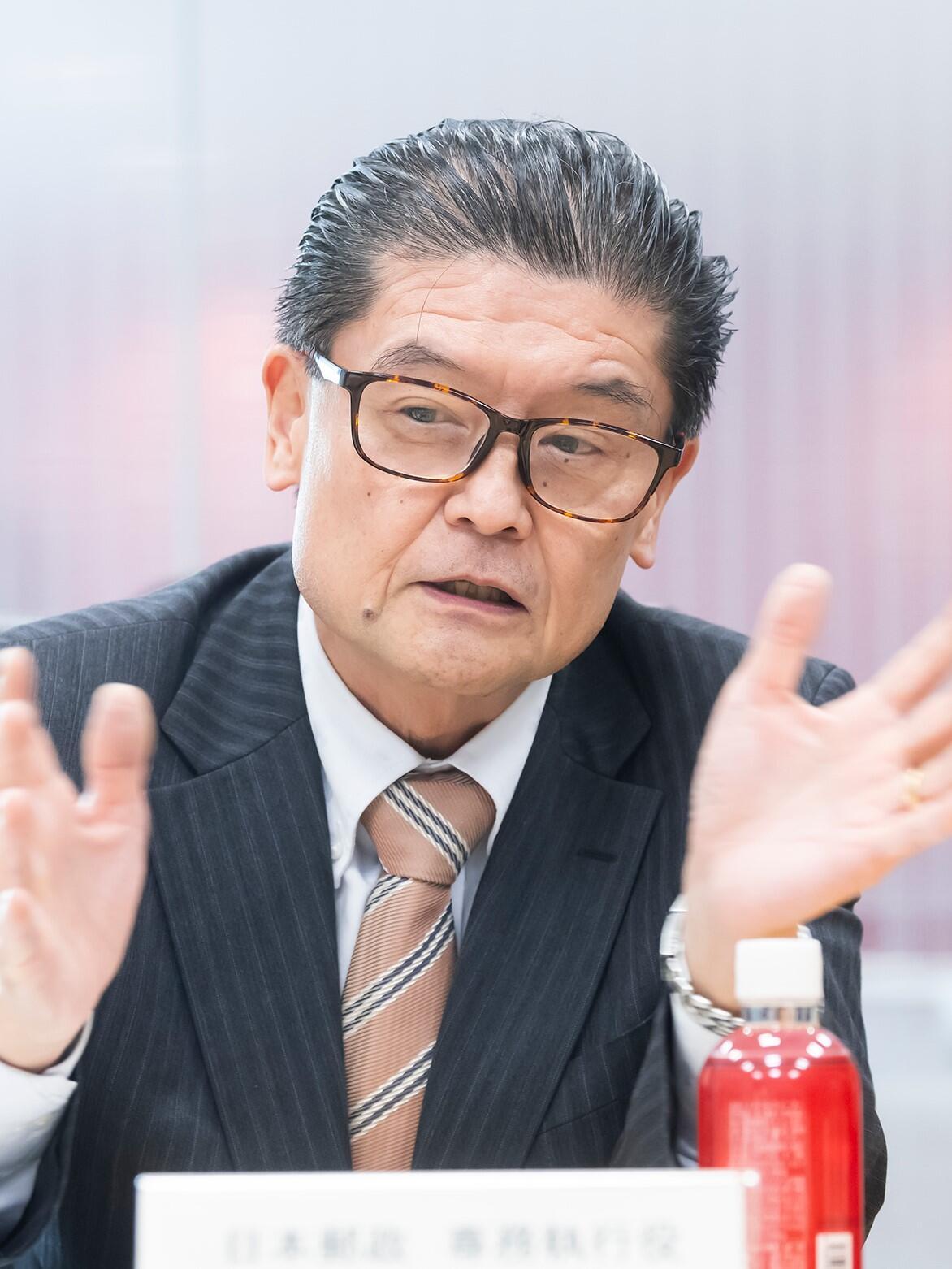
HAYASHI Toshiyuki
Senior Managing
Executive Officer
Japan Post Holdings
Co., Ltd.
For the promotion of human capital management, we are working to rebuild the career paths of employees based on the Group's Human Resources Policy and in consideration of the Group's unique structure. As for nature positive measures, I hope that the Group will also fulfill a role in the stable supply of foodstuffs. For safety, we are required to shift our focus from a central management system to a distributed autonomous management system for the recovery of infrastructure in the event of a disaster, thereby enabling people to continue to go about their routines even after disaster strikes. Also, to make contributions in the field of energy, we will implement measures such as installing solar power generation panels at post office buildings based on the use of new technologies.
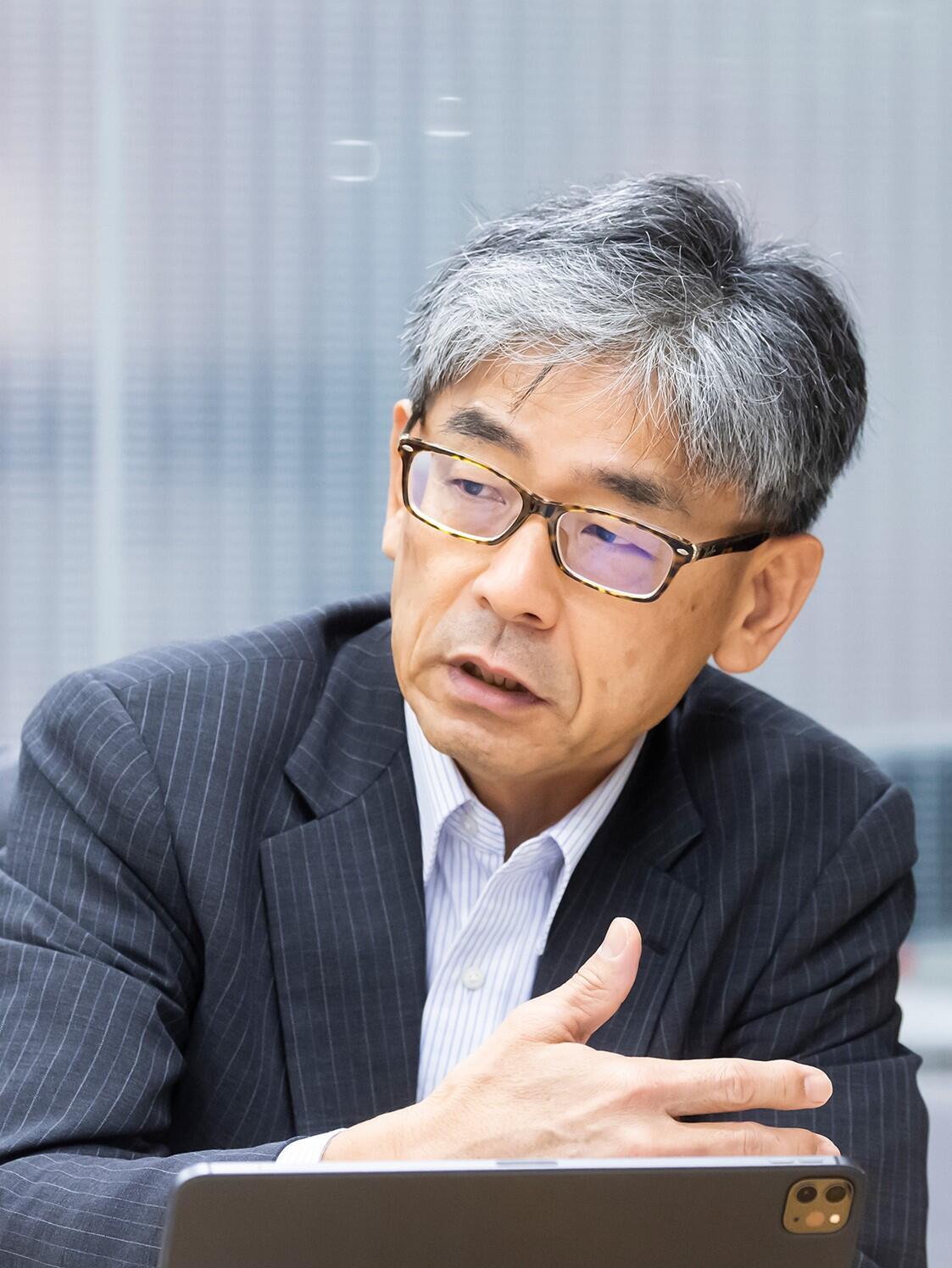
ASAI Tomonori
Senior Managing
Executive Officer
Japan Post Holdings
Co., Ltd.
I feel grateful for the valuable opinions given from various perspectives by the participating experts. We are now in the fourth term of the Local Co-creation Initiative and have achieved repeated success and improvements in a range of regions. With the concentration of people in city centers and the outflow of population from rural areas becoming a long-standing problem, the Japan Post Group is best positioned to serve as a bridge between rural and urban areas. To fulfill this role, we will deepen our understanding of rural situations and incorporate the findings into our business management.
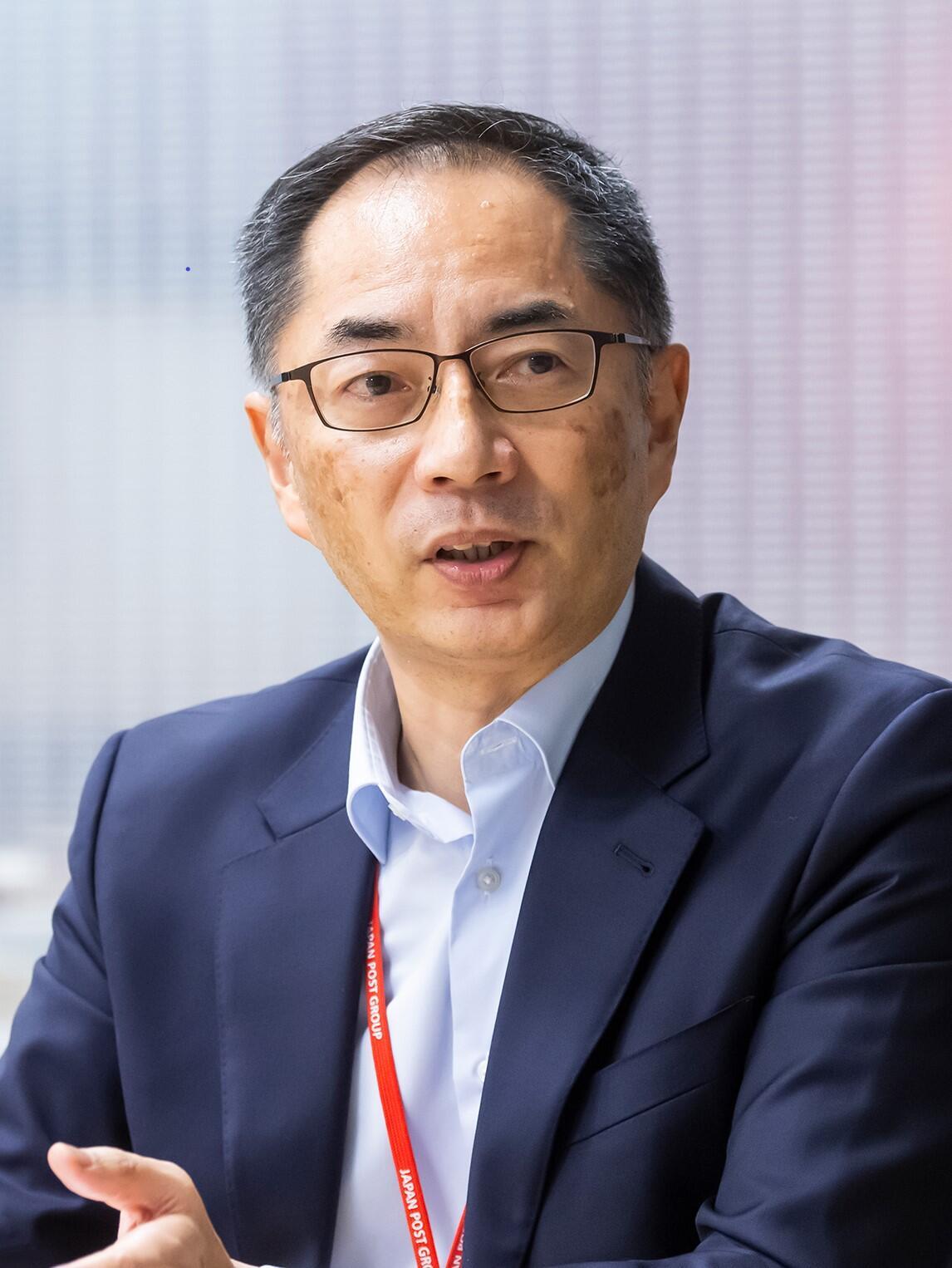
SEKI Yoshiyuki
Executive Officer
Japan Post Holdings
Co., Ltd.
We need to have a shared recognition that nonfinancial and financial issues are interrelated and that increasing our environmental and social value helps boost our long-term corporate value. In order to visualize exactly how non-financial and financial issues are interrelated, it is important to quantify our environmental and social value. The Japan Post Group considers the term "well-being" to mean the well-being of individuals, which is composed of physical well-being (health and safety), financial well-being (economic foundation), career well-being (career and fulfillment) and social well-being, as well as regional well-being. While acknowledging that some aspects of well-being can be evaluated only qualitatively, we will conduct examinations to make effective use of quantitative indicators for well-being, as proposed at the dialogue meeting.
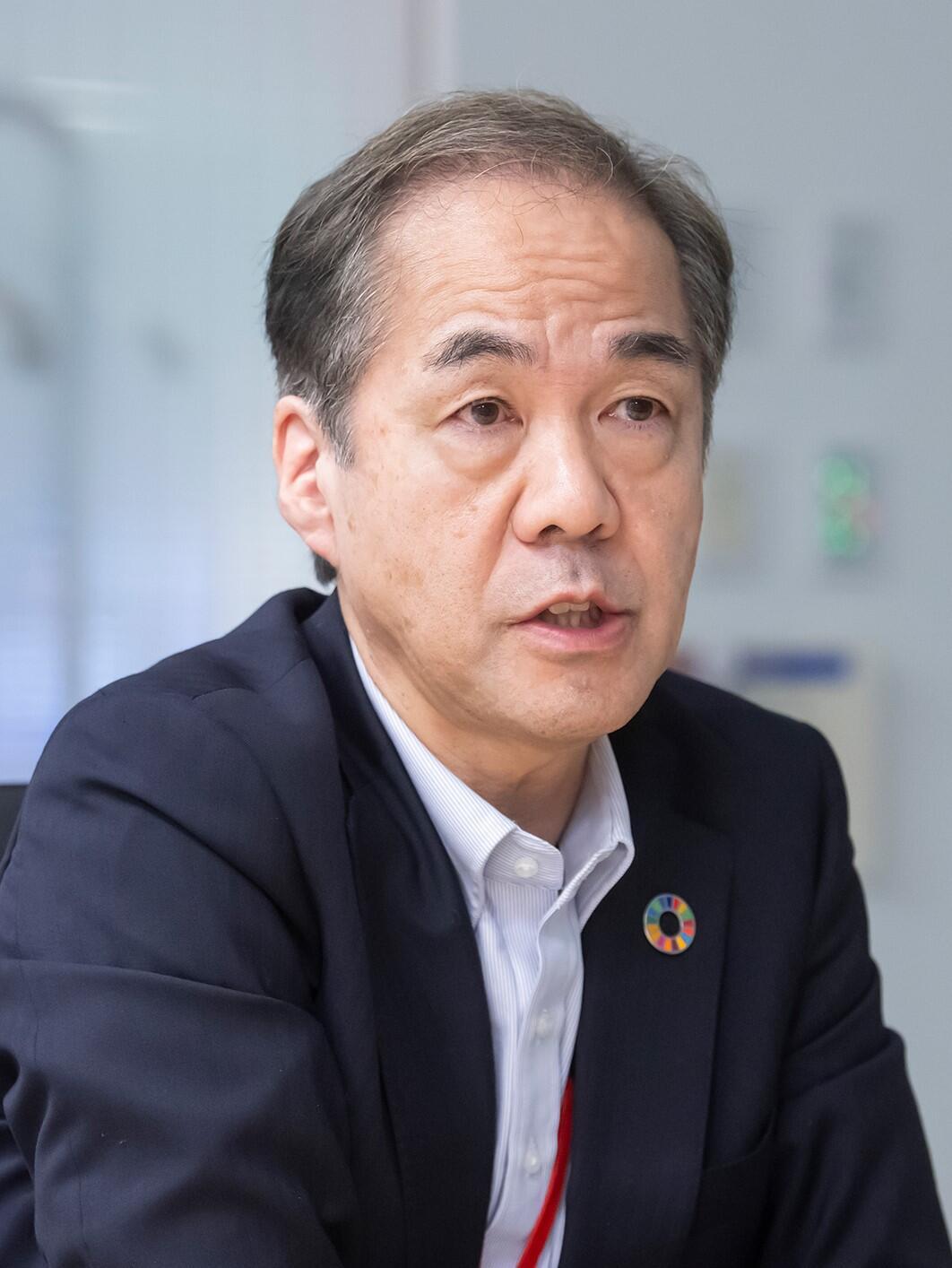
TSUYAMA Katsuhiko
First Executive Officer
(Director)
Japan Post Co., Ltd.
Presently, we are implementing measures for post offices to offer better administrative services to citizens on commission from local governments. For example, the municipal government of Daigo Town in Ibaraki Prefecture only has one office, and only around 5% of citizens can access that office on foot. To rectify this, seven post offices located within the town are now providing local government administrative services on commission, and the percentage of citizens who can access these services on foot has increased by 15%, to 20% in total. We are also working on the provision of online medical treatment through post offices with a view to giving citizens easier access to medical facilities and thereby enhancing regional well-being.




